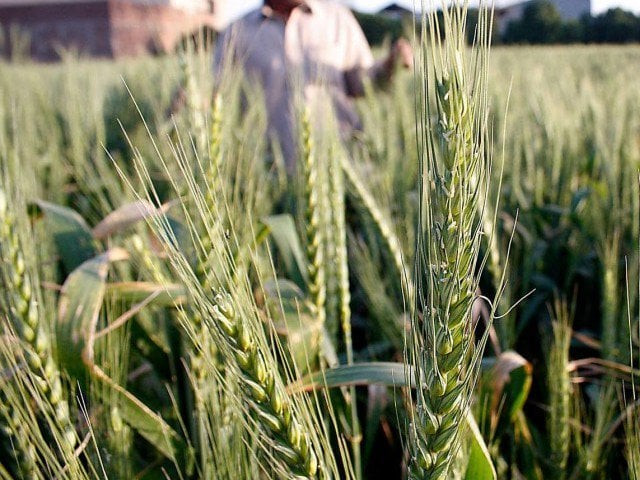$275m ADB loan to improve food security in Punjab
Loan will help build a surface irrigation system to increase agricultural production in Jhelum and Khushab districts

Loan will help build a surface irrigation system to increase agricultural production in Jhelum and Khushab districts. PHOTO: FILE
The project is expected to benefit 384,000 people. The Jalalpur Irrigation project is aimed at creating new non-perennial irrigation services for enhanced agricultural production on 79,750 hectares in Pind Daden Khan and Khushab districts.
The project will increase the kharif crop intensity by 50%, improve crop yield and reduce land degradation. It will directly benefit over 200,000 rural people, mostly poor.
However, it took the ADB and the government of Punjab almost five years to plan and approve the project. The scheme has been for the first time prioritised in the Country Partnership Strategy (2009-2013) to improve the irrigation infrastructure.
ADB says ‘political pressure’ may impact design, implementation in BRT project
The ADB’s agriculture sector evaluation (2006) for Pakistan emphasised improving water resources and irrigation. The water sector roadmap identifies improving the infrastructure, institutions and agricultural production to drive sustainable agricultural growth.
“Having a sufficient and effective irrigation system is fundamental in the development of Pakistan’s agriculture sector -- a significant driver of the country’s economy,” said Ryutaro Takaku, Principal Water Resources Specialist at ADB’s Central and West Asia Department.
“The ADB’s support will help increase agricultural production and improve food security in Pakistan.”
Agriculture remains a crucial component of Pakistan’s economy, contributing 20% of Gross Domestic Product and employing 42% of Pakistan’s total labour force in fiscal year 2015, with Punjab contributing more than 80% of the agricultural output.
Because of the country’s semi-arid climate, more than 90% of the agriculture output depends on irrigation. Pakistan’s advantage is the Indus Basin Irrigation System, which draws water from Indus River.
However, about 20% of the country’s cultivable area -- including the project area is outside the Indus Basin Irrigation System. Farming in the majority of those areas is rain fed, resulting in low agricultural productivity.
Pakistan stops bid to include Diamer-Bhasha Dam in CPEC
Some of the country’s poorest people live in those areas and depend on agriculture for their income.
The Jalalpur Irrigation Project will build a new seasonal irrigation system and convert over 68,000 hectares (ha) of less productive, predominantly rain-fed land to irrigated land by drawing water from the Jhelum River, one of the tributaries of the Indus River.
The project will construct a diversion structure, a 117-kilometer (km) main canal, 97km secondary and tertiary canals, and 485 watercourses. The project will also assist in forming 485 water user associations (WUAs) and involve them in planning, designing, and constructing watercourses.
The WUAs and the farmers will be trained to improve their agriculture and water management capacity. Advanced technologies like laser land levelling and high-efficiency irrigation systems will be introduced by the project.
About 660 agricultural demonstration plots will be established, and 6,000 farm households will learn climate-smart agriculture practices and more profitable farm management.



















COMMENTS
Comments are moderated and generally will be posted if they are on-topic and not abusive.
For more information, please see our Comments FAQ